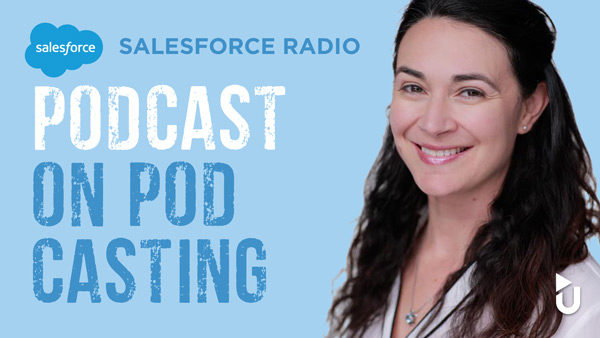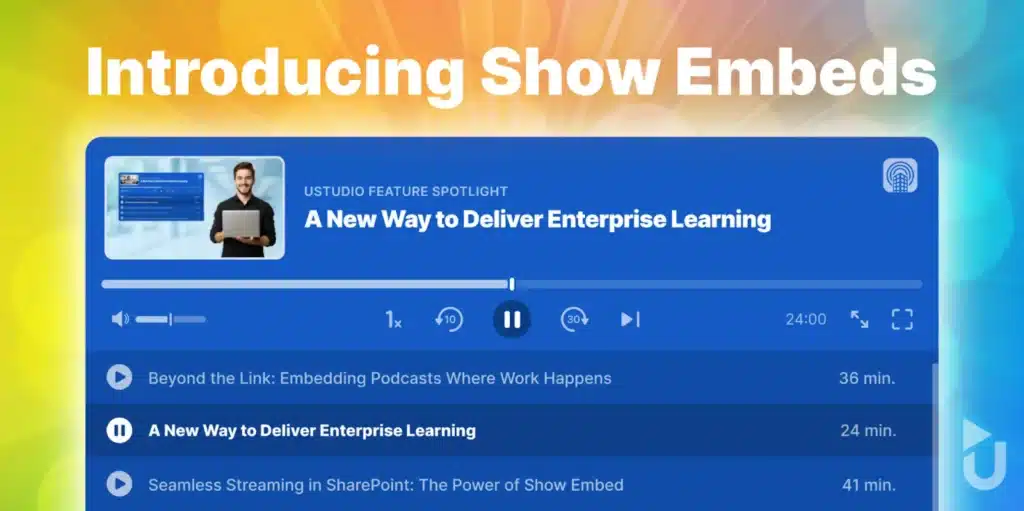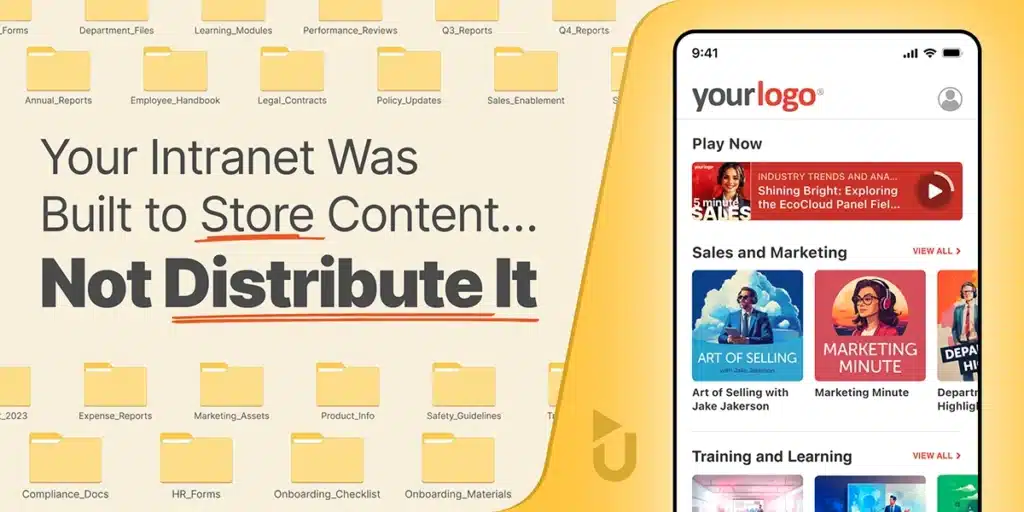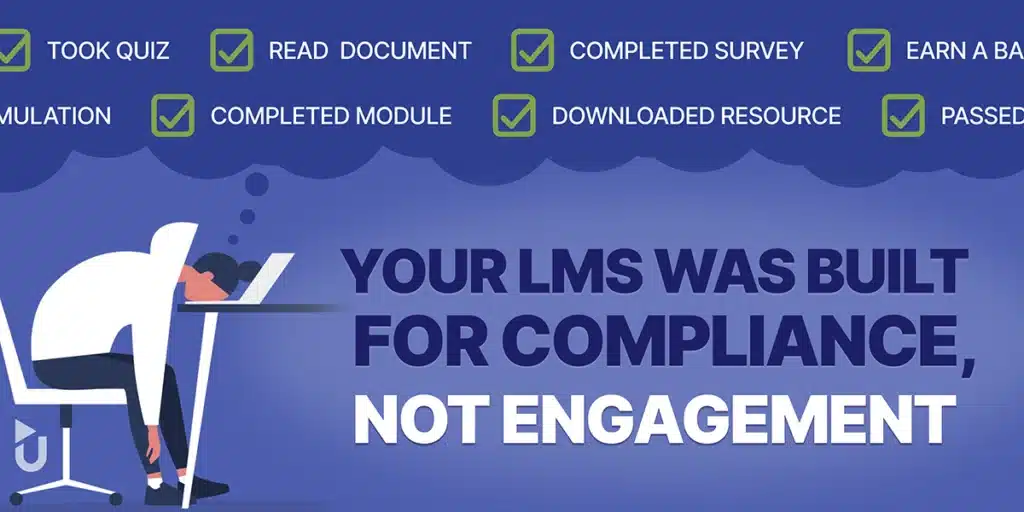Salesforce Talks to uStudio About Launching Salesforce Radio
uStudio Staff | Podcasting

On this episode of Podcast on Podcasting, we were joined by Salesforce’s Noelle Moreno, Senior Director of Creative and Content Strategy, and Andrew Duncan, Director of the Sound Department. Here, Noelle and Andrew share their personal experience launching Salesforce Radio, an audio platform for Salesforce’s 30,000 global employees. Listen to the full episode or read excerpts from the conversation below.
What was it like to get leadership buy-in for Salesforce Radio? What was that process like?
(Noelle) It wasn't a question of whether or not a private enterprise podcast at Salesforce should happen, it was really a question of how do we angle enterprise podcasting at Salesforce? What's really the business value? I think I pitched radio at least seven times. By the seventh time, I thought, if no one's biting now, I don't know what else I can do here. I would come back to the studio and to the team to ground myself and say, okay, I know what we're doing is the right thing. I'm going to keep doing it. I'm going to keep fighting for this. I know what we're doing is new, and what we're doing is beneficial, and I really believe in it.
Were you able to put your finger on why those first pitches didn’t work? How did you finally get buy-in?
(Andrew) I think contextualizing and finding the audience is so difficult, even within the company. When we initially started talking about creating a private podcast for our employees, it was for the whole company. How do you make a show that relates to the programmers, and the sales people and the admin people, and everything in between?
(Noelle) I think it evolved over time from a really big, pie-in-the-sky vision of ‘here’s everything we could do’ to then forcing ourselves to really narrow it down to sales enablement. And then even in the sales enablement space, we had so many ideas. I think we had 10 amazing show ideas that we wanted to do all at once. It was really, to some extent, tempering us to be more realistic about what we could actually do, and then what would be impactful. So, rather than trying to put out so much content that it might have felt unwieldy for this first launch, we really focused on four to five shows that we knew were going to be great. I think that's probably where we felt the winds change.
That’s interesting that you honed in on Sales Enablement as your main use case. Why do sales teams need this?
(Noelle) A lot of the learning that we provide for sales teams today -- which is fantastic -- is really based on a macro learning concept of being able to sit down and study, this idea that you have focused time. We wanted to spend some more effort thinking about micro-learning opportunities, where you're just learning and didn't necessarily mean to. You were searching for something on the go. It's on demand and an easy way to really get information. Our intention is really to meet the sales team where they are. Our sales teams are on the go, and we understand that they're not always going to be beholden to their laptops. We want to be where they are.
What were some of your other considerations early on?
(Andrew) We also had to understand the engine that it takes to get Salesforce Radio off the ground and truly keep it going. You can't just do a proof of concept and then be like, yeah we're podcasting now. It takes the infrastructure, the will, the budget and the time to do something on a regular basis. You start to realize you need a team to keep it going.
(Noelle) There's a lot of us who are working on this just because we think this is the best thing to do right now in our careers, and we're excited about it. We're just doing it out of passion and really love for the medium itself.
How did you approach your content strategy?
(Noelle) We really investigated where our content gaps are. Thinking all right, what podcasts are already out there? What content are we already creating internally? How is this audio content different? I would encourage people to make sure that your podcast has differentiated value than the other mediums that you're already producing. Why do we need this particular type of content? What's different and unique about it and why do sales teams want it?
What was your content development process like?
(Noelle): We spent time thinking about very methodically around what is the style of each show that we're producing. Is this a reporting show, is it an interview style? We had to all be on the same page of what we were doing and the style of that. Then we had someone who was really looking at each episode of a certain show was going to be. Then Andrew was looking at what is the sound design of that show? What is the vibe of the show? How do I bring that to life?
(Andrew) You kind of have to work with what you have available. Eventually, someone has got to get on the microphone and make it happen. Maybe you're not a voice person, or you're not a DJ or a show host, but someone has to stand up and say I will do that. Then you find yourself being a show host. The spirit has been very DIY.
So you don’t cast your shows?
(Andrew) I think the more we did the casting call kind of thing, it seemed kind of weird. We need people who are involved with the content being the ones talking about it. The message has to be embodied in their voice. Also, this is a very diversity-focused company, so we should have all kinds of voices. We should make it sound diverse and we should also embrace imperfections.
Companies usually shy away from “imperfections” don’t they?
(Andrew) If you're going to start something, it's usually going to look kind of a mess at first. I liken it to learning an instrument. There are days when you don't sound good and it's not working. If you're trying a new technique, then the only thing you really have is your will to continue, because there are going to be good days and bad days. It's just like life. Either you believe in the mission, and you're going to keep on showing up, or you quit. Get on the microphone, or don't.
I feel like there's a fear component about working with a new medium. But I've listened to a lot of other podcasts, and there's so many people who get in front of the microphone that say “um” and “like” all the time, or have really annoying voices, and they still get tons of listens. We can do that here too. There's space for that. The content is valuable. The fear of imperfection is a hurdle, but it is definitely surmountable.
How many shows do you currently produce? Tell us a little more about your shows.
(Noelle) We have five shows that we produce internally for sales and customer success teams. We have the news, which is a three-minute weekly digest on all things that are happening at Salesforce. We have Snap Shot, which is a ten-minute weekly show, where we dig into those news topics a bit more. Then we have Trail Cast which is basically taking the huge stream of content we create for sales and turning that into Audiobooks.
(Andrew) The Howl is basically the customer success group’s version of the Snap Shot weekly news program. Then there's the Human Element which is for teaching people about career guidance and soft skills in selling. Those are more like long form interviews.
What has been the reaction from the executive team once you got greenlit to move forward or since you launched?
(Noelle) Our executive team is really supportive. This is a business at the end of the day, so they want to see those consumption numbers go up, and so do we. We've got to continue to market this and help people realize how to use the app and how to think about the content, because this is something that's completely new for the company. I think it will take some time for those numbers to go up because we have to do that continuous education and marketing. But the executives are really supportive.
What has been the reaction since you launched Salesforce Radio?
(Noelle) I would say like the immediate effect I've seen is awe and gratefulness. Were getting a lot of people saying: Like really? This is for me? I can tune in, and this content is just for me? People are psyched about it. They can’t believe they can actually just listen on their journey throughout their day on their mobile device.
(Andrew) It's meteoric. We don't have a spare minute We're just churning. We just launched now, and we are set to grow.
Why do you think this content is so valuable?
(Noelle) We're able to tell stories that don't always get told. We're getting a different point of view for folks who weren't on the big marketing stage. Like the Account Executive who just sold a deal that wouldn't have had any air time. That to me is the most meaningful content. Just hearing from other people. That's how you learn.
Another example is Dreamforce, our huge annual conference. Not everyone gets to go to Dreamforce, so we would interview customers and leaders in the company about what was happening at Dreamforce and really try to bring the event to the teams. It felt really rewarding to be able to deliver that to folks who weren't able to go. We could see people actually tuning in and know that we gave them something that they actually really wanted and needed. That to me, was pretty awesome.
So, what’s next for Salesforce Radio?
(Noelle) We are definitely focused on understanding what people think about the content? What new shows do we need to develop? Are we getting the hits that we really wanted to? For a long time, we were just trying to launch and make sure everyone knows about it. Now they really know about it. Now we're really here. I feel like now it's really game on.
To hear more episodes of Podcast on Podcasting, download our app on iOS or Android today, or visit our podcast episode library.


